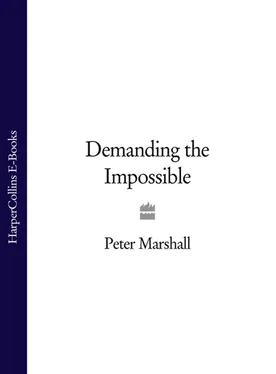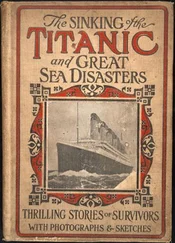Art is Individualism, and Individualism is a disturbing and disintegrating force. Therein lies its immense value. For what it seeks to disturb is monotony of type, slavery of custom, tyranny of habit, and the reduction of man to the level of the machine. 78
For Wilde socialism is a means to an end; the goal is the full development of the personality. He insists that the artist would only be able to flourish in a society without government, but it is not only political authority that he is concerned with. He suggests that there are three kinds of despotism: ‘There is the despot who tyrannizes over the body. There is the despot who tyrannizes over the soul. There is the despot who tyrannizes over the body and soul alike. The first is called the Prince. The second is called the Pope. The third is called the People.’ 79 All three should be done away with.
Wilde admires Christ since he urged man to ‘Be thyself.’ But he made no attempt to reconstruct society and preached that man could realize a form of individualism only through pain or in solitude. Wilde insists that man is naturally social and the aim of life and art is joy. He therefore calls his new individualism a ‘new Hellenism’ which combines the best of Greek and Christian culture. It looks to socialism and science as its methods and aims at an intense, full and perfect life. If successful it will bring pleasure for ‘When man is happy, he is in harmony with himself and his environment.’ 80
Wilde faces the stock objections to his ideal of anarchy that it is impractical and goes against human nature. Firstly, the only thing that one really knows about human nature is that it changes, and once existing conditions are changed human nature will change. Evolution is a law of life and the tendency of evolution is towards individualism. Secondly, Wilde claims that his form of individualism will not be selfish or affected. Man is naturally social. Selfishness is not living as one wishes to live, it is asking others to live as one wishes to live. It aims at creating an absolute uniformity of type. Unselfishness, on the other hand, is ‘letting other people’s lives alone, not interfering with them’. 81 When man has realized true individualism, he will also realize sympathy and exercise it freely and spontaneously. In a society without poverty and disease, man will have joy in the contemplation of the joyous life of others.
Daring to oppose conventional morality, Wilde was imprisoned for homosexuality. It broke his health, but not his spirit. The experience only confirmed his analysis of the judicial system and government. He wrote afterwards to a friend that he wished to talk over ‘the many prisons of life – prisons of stone, prisons of passions, prisons of intellect, prisons of morality and the rest. All limitations, external or internal, are prisons.’ 82
Furthermore, the experience inspired one of the most moving poems in the English language, The Ballad of Reading Gaol (1896), the simple form of which expresses the deepest of emotions. The poem concerns a soldier who is about to be hanged for murdering his lover; the theme implied is that such cruelty is widespread (‘each man kills the thing he loves’), but Wilde insists that the murderer’s punishment by a guilty society is the greater cruelty. He directly sympathizes with the condemned man, drawing the inevitable conclusion:
But this I know, that every Law
That men have made for Man,
Since first Man took his brother’s life,
And the sad world began,
But straws the wheat and saves the chaff
With a most evil fan.
The vilest deeds likes poison weeds
Bloom well in prison-air;
It is only what is good in Man
That wastes and withers there:
Pale Anguish keeps the heavy gate,
And the Warder is Despair. 83
Wilde is the greatest of all libertarians. He recognized that art by its nature is subversive and the artist must rebel against existing moral norms and political institutions, but saw that only communal property can allow individuality to flourish. He argued that every person should seek to make themselves perfect by following their own inner impulses. This could be made possible only by the break-up of habit and prejudice, a thorough transformation of everyday life. He placed art and thought at the centre of life, and realized that true individualism leads to spontaneous sympathy for others. He had a wonderful sense of play and wit, and was blessed with overflowing creative energy. As a result, Wilde’s libertarian socialism is the most attractive of all the varieties of anarchism and socialism. Bernard Shaw observed that contemporary Fabian and Marxian socialists laughed at his moral and social beliefs, but Wilde as usual got the last laugh. He will be long remembered after they have been forgotten.
THERE IS A LONG TRADITION in North America of hostility to the State and defence of personal autonomy; the United States is after all the oldest liberal democracy in the world. The Protestant right of private judgement or conscience became a central part of American political culture, and formed the basis of the defence of freedom of thought and speech. It also accounts for the deeply ingrained sense of individualism in American society.
After the American War of Independence, the founding fathers of the new republic felt compelled to introduce government to protect private property and individual rights to life, liberty and the pursuit of happiness. But they were keen to keep government interference to a minimum and adopted the principle of federation to spread political authority throughout the regions. Immediately after the Revolution, the Articles of Confederation established minimal government, libertarian and decentralized, although its powers were inexorably strengthened in the following decades.
The self-reliant settlers were well aware without reading Tom Paine’s Common Sense (1776) that ‘Society in every state is a blessing, but government even in its best state is but a necessary evil; in its worst state an intolerable one’. They shared for the most part the maxim attributed to Thomas Jefferson: ‘That government is best which governs least.’ The principle has become a rallying-cry for libertarians ever since, although anarchists have added that the best government is that which governs not at all.
In the nineteenth century, American anarchism developed mainly in an individualist direction in the hands of Josiah Warren, Stephen Pearl Andrews, Lysander Spooner and Benjamin Tucker. While they came close to anarchism, the writers Emerson, Whitman and Thoreau expressed most keenly the libertarian ideal. Their independent stance directly inspired later anarchists and their combination of ‘Transcendental Individualism’ with a search for a creative life close to nature finds echoes in the counter-culture and Green movements of the late-twentieth century.
Ralph Waldo Emerson was the elder guru of the Transcendentalists of New England. After Harvard University, he entered the ministry, only to abandon it and sail to Europe, where he became a friend of Carlyle. He returned to Massachusetts and was soon installed as ‘the Sage of Concord’, attracting a literary-philosophical coterie. At Concord, he developed his philosophy – relying on intuition as the only access to reality – in prose of uncommon lyricism. Believing in the ‘divine sufficiency of the individual’, he refused to accept the inevitability or objective existence of evil. Emerson based his libertarian vision on a belief that ‘reason is potentially perfect’ in everyone and that ‘a man contains all that is needful to his government within himself. 1 Conscience moreover is sacrosanct and capable of leading us to moral truth. ‘Judge for yourself … reverence yourself, he taught. An inevitable inference of his doctrine was that each man should be a State in himself; we should develop our individual character as rational and moral beings rather than set up oppressive and superfluous State institutions. Indeed, in his essay on ‘Politics’ (1845), Emerson declared as a radical Jeffersonian:
Читать дальше












